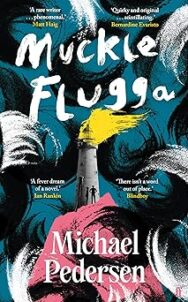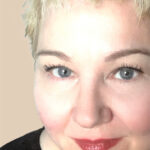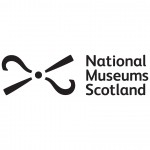‘My Muckle Flugga, though based on the real life Muckle Flugga we swooned over, has perhaps grown to ten times its size. And beyond that my island is known to shape shift, never fully settling. It carries something occult in its soil.’
Muckle Flugga is the debut novel by Edinburgh Makar, Michael Pedersen. We chatted to him about his writing life so far.
Muckle Flugga
By Michael Pedersen
Published by Faber
Hello Michael, it’s lovely to have you back here on BfS. So, you’ve given us poetry, you’ve tackled non-fiction, and now you’re releasing your first novel, Muckle Flugga; it’s all very exciting! When you started out writing, did you see yourself adventuring across genres?
Oh I’ve long worshipped at every literary altar I’ve come across. A cherisher of all genres, and a traitor to each. But, hey, I also love the stuff that dwells in-between these categories and realms – prose poetry melding into poetic prose; autofiction burling with biographical fiction; the literary misfits and pariahs that blur expected boundaries.
Poetry has been my staple, it oozes everywhere, all my prose is caked in the stuff.
In truth, I started writing non-fiction by accident because the words wouldn’t settle as poems. But suffice to say, the whole time, I’ve been building up to this first novel.
What can you tell our readers about Muckle Flugga?
Muckle Flugga is a book wrought with landscape and lore, bumps-in-the-night and celestial secrets; part friendship love story, part character drama, part starry-eyed waltz with the world.
It starts on a remote and rugged island, with a lighthouse standing sentry, its beam charged by starlight.
I knew it had to be a small cast: a lighthouse keeper and his dreamy son at the centre of it all – their world thrown off axis by a stranger’s arrival. It’s an old bonds up against new scenario with a deep historical resonance.
We love the thought here of literary Guardian Angels, so were tickled to read of Ouse’s friendship with Robert Louis Stevenson. We absolutely love his advice in the book! What does he mean to you as a writer?
I adore RLS, he’s a dreamer, not a lighthouse engineer like the rest of family, but an imagineer that enlivens minds and doles out courage via his adventurous tales. My mum used to read me the poems from A Child’s Garden of Verses when I was a kid – she even put some to music for the bairns she taught at nursery (being a creatively driven nursery nurse in the Leith area of Edinburgh for most of her working life).
Also, I won the Robert Louis Stevenson Fellowship a while back and got to travel to the verdant Grez-sur-Loing in France and stay at the infamous Hotel Chevillon (for a long November). So I stalked RLS to where he conjured a lot of literary lustre, and also met and fell for his wife-to-be Fanny Osborn. As I strutted around that village the air was lust-laden with inspiration and had me pondering with renewed purpose. If Muckle Flugga gets made into a blockbuster movie I’ll bring back that Fellowship – it changed me as both a writer and a person. I am indebted to RLS for its existence.
And did you have fun writing his character?
It was a total ball, but also terrifying. I’m a fervent RLS fan but by no means an academic source on his writing, my erudition is juvenile. And, well, there’s RLS aficionados the world overflowing with astounding knowledge on the great man.
I will say I got unique access to the RLS archive held by National Library of Scotland, via the curator Colin McIlroy, which bequeathed upon me some special insights. And also I drew a lot of sapience from a few key texts, namely: A Friendship in Letters: Robert Louis Stevenson & JM Barrie edited together by Dr Michael Shaw. That plus Bella Bathurst’s extraordinary book: The Lighthouse Stevensons. Oh, and the former President of the Robert Louis Stevenson Club, the good Dr Mitchell Manson, was kind enough to lend me a chunk of his collection, and helped unriddle a few riddles I was roosting on.
Have you ever been to Muckle Flugga? And the lighthouse? Or did you want to keep the place entirely imaginary in your head while you were writing?
I quested to the nearby island of Unst with Bill Drummond as part of a Neu! Reekie! adventure back in 2019 – together we gazed upon Muckle Flugga across the ocean. We also got invited into Muckle Flugga Shore Station (situated on north Unst) for Bill Drummond’s unofficial birthday party, which he ambushed upon an unsuspecting fan who’d invited us there for brunch post a couple of shandies at the previous night’s event.
I’ve a novel launch event with Shetland Arts at Mareel in July, me and Hollie McNish are going to try and journey there then. Hopefully with a bit of help from the fab Shetland poet Roseanne Watt, who’s also doing the show.
I will caveat the above by saying, my Muckle Flugga, though based on the real life Muckle Flugga we swooned over, has perhaps grown to ten times its size. And beyond that my island is known to shape shift, never fully settling. It carries something occult in its soil.
An absolutely fantabulous book map has been inked up by book map supremo Neil Gower to offer visual aid, should you need it. Book maps being very much in the RLS tradition.
Right away, we are drawn in to a world that is both recognisable yet dreamlike or reminiscent of fairytale. What are your thoughts on style and tone in writing?
Tones are less definable to me than notions of tenderness and tension and the rumination that orbits around them. That’s the type of mix I love, and that’s the ilk of storytelling that enthrals me.
I’ve been described as relentlessly optimistic, often flamboyant in my language, and I’m sensational in my soppiness, it’s all true / guilty as charged. But I love human complexities too, the grit and the struggle – we are all vulnerable beings wrangling with the massiveness of the mind and our place in this universe. I took all this to oath, and kept it close as I wrote and edited this book.
I also wanted to sculpt a character drama that felt it was deeply entrenched in the type of friendship love stories I lionise – the ones I seek out when lost and fragile and hungry for hope. Issues of class and identity had to rear their heads, alongside natural world wonderment, with modest flashes of magical realism.
In our wider quotes for the novel people reference JRR Tolkien, George Orwell, Margaret Atwood and Alan Garner, and naturally I was elated by all those literary tones, whilst paying tribute to the magnificence of each of their opuses. That’s to say, I wouldn’t be so brazen as to summon any of these giants in comparison, but I do adore all their multi-tonal writings and hopefully some of that seeps in – be it by tealight or tincture.
There is darkness behind the flights of fancy, on grief, loneliness, fear and regret, yet it’s done with depth and a lightness of touch or economy, that we’re wondering if you think your poetry background helped you with your novel writing?
Poetry helps me investigate and understand the world; it helps me project my life into other people’s lives and invite them into mine. It’s never been about forensically pinning down the right answer for me, but learning to ask empowering questions that light the way forward. Even a glisk of light can be enough to rope the way home to a poor soul lost at sea.
That’s to say, yes – the poetic engine, the emotional compass within it, is revving in every sentence of this book, it helped steer me to shore.
As someone with a background in events organisation (long live Neu Reekie!) do you enjoy the promotional side of the writing life?
Unwaveringly, yes, I do. I love learning how to best represent the book in a live manifestation, injecting it with performative exuberance or unfurling from within it deep discussions. I love conjuring the launches and inviting kindred spirits to talk to me about the work and engage with the themes. I love talking to readers who the book has thrummed for, or who might have niggling questions, or impasses, they need answers to – quirks that exist in the novel’s hinterland, for better or worse.
On this gigantic novel launch tour, I’m in-conversation with / or performing alongside the likes of: Stephen Fry (Hay-on-Wye); Jackie Kay (Edinburgh); Val McDermid (Edinburgh); Denise Mina (Dollar); Fern Brady (London); Nicola Sturgeon (Glasgow); Hollie McNish (multiple locations); and more. What a carousel of joyous humans to be able to soar with – exquisite creatures each and all. My gratitude is gargantuan and growing, I’ll not mince my words here.
You were also named Edinburgh Makar last year. How have you found the role so far?
Och, yes, I’ve love this role too. What an honour. To celebrate Edinburgh and poetry, preferably in unison, is how I go through life anyhoo, that revered banner naturally adds some additional bravura.
I look at the Makarship more as what I deliver than anything else. My first project was to launch the Edinburgh Makar’s Poetry Prize and get more young people writing poetry. Alongside the ace Janette Ayachi and Super Power Agency, we parachuted into three state schools to run workshops, give talks and launch a writing competition – aye, on the theme of friendship. And what a wealth of luminous entries we got. I’ll be growing that competition year on year.
There’s a couple of salient pieces I’ve conjured in the role. The first was being enlisted to write a poem to front a Samaritans campaign, helping launching their new SamariTartan range (yes, they had me at the name). The second was being tasked with sculpting a poem to celebrate Edinburgh turning 20 as the world’s first UNESCO City of Literature with nods to the city itself turning 900 years old – my ‘great Edinburgh poem’, so to speak. I tussled with this, the bifurcated soul of this city is rich with both marvels and mischief, but in the end it all came back to its people. I’m chuffed with how each project came to fruition.
There’s more interesting work to follow with the likes of Dynamic Earth and Edinburgh University Medical School (who’re turning 300 years old – imagine, aw them doctors and nurses and the lives they’ve saved), but I’ll keep schtum on that for noo.
My mettle is mottling as we speak.
Muckle Flugga by Michael Pedersen is published by Faber, priced £16.99.
ALSO IN THIS ISSUE
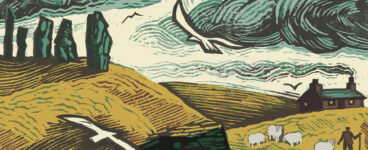
 David Robinson Reviews: Storms Edge by Peter Marshall
David Robinson Reviews: Storms Edge by Peter Marshall
‘And the way Marshall writes history, putting the spotlight on Orkney and its people and showing how …
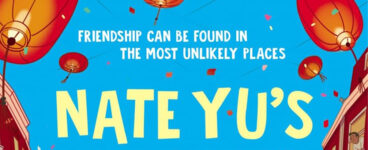
 Nate Yu’s Blast From the Past: A Q & A with Maisie Chan
Nate Yu’s Blast From the Past: A Q & A with Maisie Chan
‘It’s a book about identity, untold histories and it has ant facts, karaoke and more surprises.’





